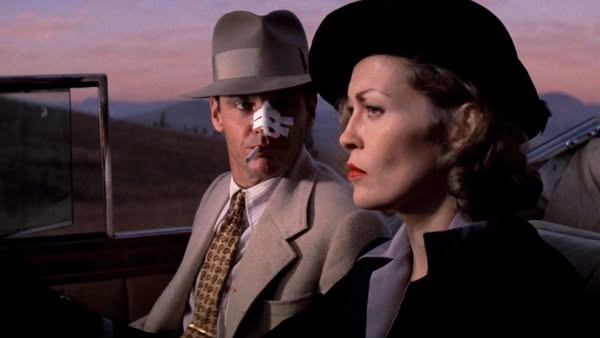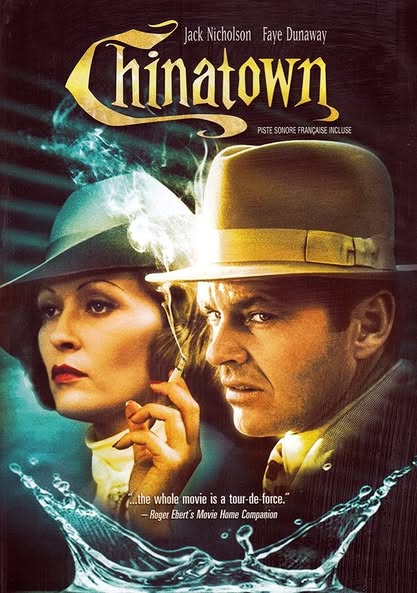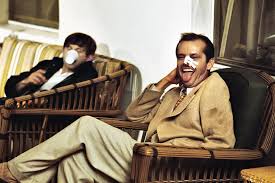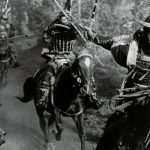Chinatown (1974)

Chinatown is a 1974 neo-noir film that has garnered critical acclaim and is often regarded as one of the greatest films in American cinema. Directed by Roman Polanski, the film masterfully weaves together elements of mystery, drama, and social commentary, set against the backdrop of 1930s Los Angeles. The narrative follows private investigator J.J. Gittes, played by Jack Nicholson, who becomes entangled in a complex web of deceit and corruption while investigating an adultery case that quickly escalates into a far more sinister plot involving water rights and municipal corruption.
The film opens with Gittes, a seemingly competent and unscrupulous detective, who is hired by a woman claiming to be the wife of a prominent businessman. However, as Gittes delves deeper into the case, he uncovers layers of deception that lead him to confront powerful figures in the city. The plot thickens as he encounters Evelyn Mulwray, portrayed by Faye Dunaway, the wife of the businessman, who becomes both a love interest and a key player in the unfolding drama. The film’s intricate narrative structure is crafted with precision, revealing shocking twists and turns that challenge Gittes’s understanding of morality and justice.
Chinatown is not just a crime thriller; it also serves as a poignant reflection on the darker aspects of human nature and the pervasive corruption in society. The film’s themes explore the complexities of power, betrayal, and the often-bleak reality of the American Dream. The title itself is emblematic of the film’s exploration of a world where truth is elusive and characters are often trapped by their circumstances. The atmosphere is thick with tension, underscored by a sense of impending doom, as Gittes navigates a morally ambiguous landscape filled with greed and betrayal.

Polanski’s direction is characterized by a meticulous attention to detail and an ability to create a sense of unease. The film’s cinematography, handled by John A. Alonzo, captures the sun-soaked streets of Los Angeles while also conveying a sense of claustrophobia and danger lurking beneath the surface. The use of lighting and framing enhances the film’s noir aesthetic, creating a visual language that complements the narrative’s themes. The lush score by Jerry Goldsmith further amplifies the emotional weight of the story, blending haunting melodies with a sense of urgency.

The performances in Chinatown are exceptional, particularly Jack Nicholson’s portrayal of J.J. Gittes. Nicholson brings a compelling mix of charm and vulnerability to the character, making Gittes both relatable and deeply flawed. Faye Dunaway delivers a powerful performance as Evelyn, embodying a complex character who is both a victim and a manipulator. The chemistry between Nicholson and Dunaway is palpable, adding depth to their tumultuous relationship. The supporting cast, including John Huston as the enigmatic Noah Cross, contributes to the film’s overall sense of intrigue and menace.

As the narrative unfolds, Gittes’s investigation leads him to confront not only external forces but also his own moral compass. The film builds to a harrowing climax that forces viewers to grapple with the implications of Gittes’s discoveries. The final moments of Chinatown leave a lasting impact, as the resolution is both tragic and thought-provoking, reinforcing the idea that justice is often unattainable in a corrupt world.
Overall, Chinatown stands as a seminal work in the neo-noir genre, blending a gripping narrative with rich thematic exploration. Its intricate plot, strong performances, and masterful direction make it a timeless classic that resonates with audiences today. The film’s influence can be seen in countless works that followed, solidifying its place in cinematic history. With its blend of mystery, social commentary, and psychological depth, Chinatown remains a powerful exploration of human nature and the complexities of the world we inhabit.











